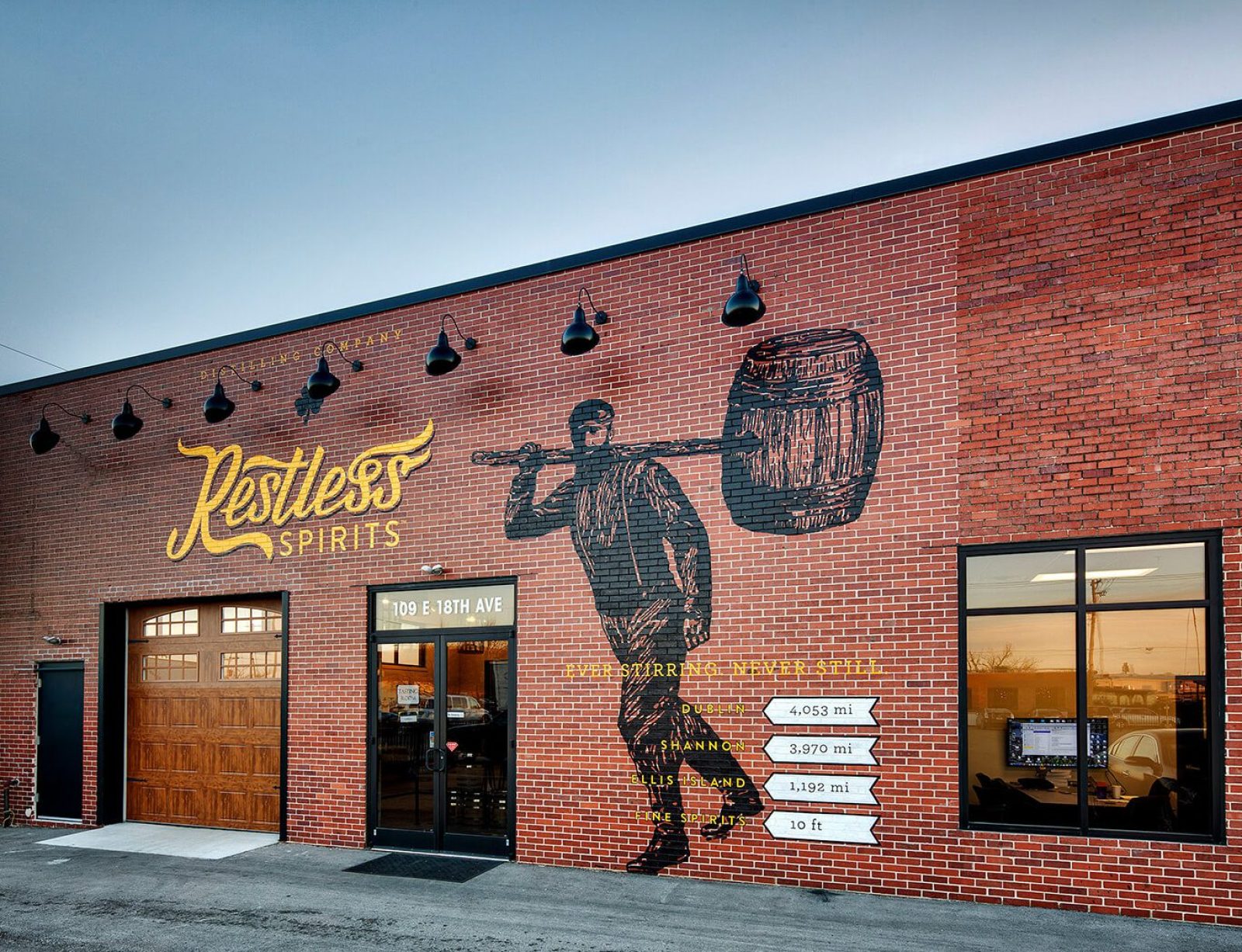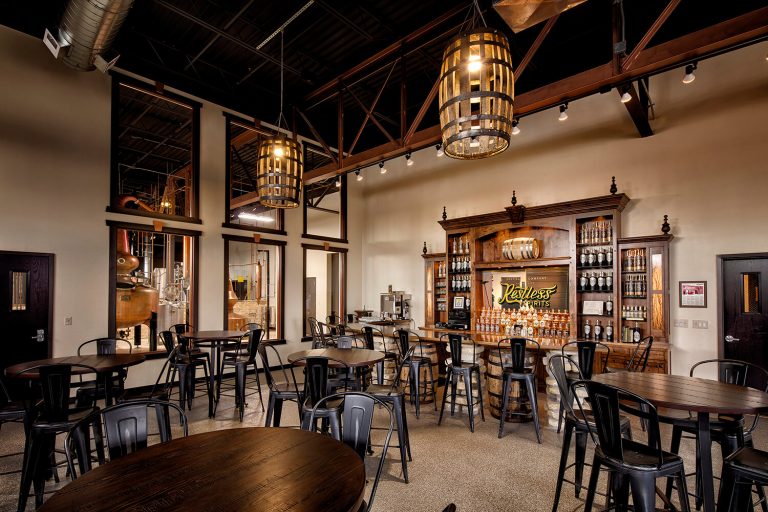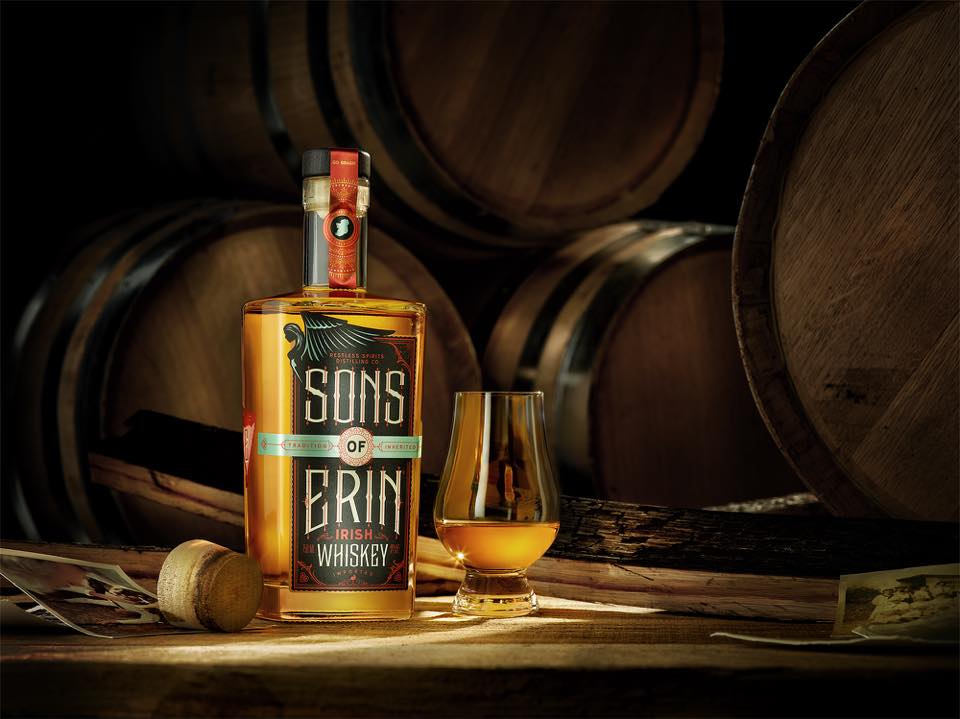Restless spirits distilling has become an intriguing and increasingly popular practice in recent years, captivating enthusiasts and professionals alike. This age-old process involves the meticulous transformation of raw ingredients into refined spirits, capturing the essence of flavor, aroma, and character. Distilling restless spirits requires a deep understanding of chemistry, patience, and creativity, making it an art form as much as a science. Whether you're a seasoned distiller or a curious beginner, the world of restless spirits distilling offers endless possibilities and rewards for those willing to explore its depths. From the selection of ingredients to the careful control of temperature and time, every step in the process plays a crucial role in shaping the final product.
What sets restless spirits distilling apart from other forms of distillation is its focus on capturing the unique qualities of each ingredient, often emphasizing bold flavors and complex profiles. Distillers who specialize in this craft are driven by a passion for innovation, constantly experimenting with new techniques and ingredients to push the boundaries of what is possible. As a result, restless spirits distilling has gained a reputation for producing spirits that are not only delicious but also thought-provoking, offering drinkers a sensory experience unlike any other. This growing interest in the field has led to a surge in demand for high-quality, handcrafted spirits, creating new opportunities for both hobbyists and professionals.
For those interested in diving deeper into the world of restless spirits distilling, this comprehensive guide will provide you with the knowledge and tools you need to succeed. From understanding the basics of distillation to mastering advanced techniques, we will cover everything you need to know to create spirits that reflect your vision and creativity. Whether you're looking to start your own distillery or simply want to explore the craft as a hobby, this article will serve as your ultimate resource. Let's embark on this journey together and discover the endless possibilities that restless spirits distilling has to offer.
Read also:How Do Pillsbury's Halloween Cookies Compare To Other Brands
What Exactly Are Restless Spirits Distilling?
Restless spirits distilling refers to the specialized process of creating spirits that emphasize bold, unconventional flavors and aromas. These spirits often challenge traditional norms, offering drinkers a unique sensory experience that goes beyond the ordinary. The term "restless" captures the essence of this craft, highlighting the relentless pursuit of innovation and experimentation that drives distillers in this field. Unlike more conventional spirits, restless spirits are crafted with a focus on complexity, depth, and individuality, making them stand out in a crowded market.
At its core, restless spirits distilling involves the careful selection and manipulation of ingredients to extract their essential qualities. This process begins with the choice of base materials, which can range from traditional grains and fruits to exotic botanicals and herbs. Each ingredient contributes its own unique characteristics to the final product, requiring distillers to have a deep understanding of how different elements interact and complement one another. Once the ingredients are chosen, the distiller must carefully control variables such as temperature, pressure, and time to ensure the desired outcome. This precise control allows restless spirits distillers to create products that are both innovative and consistent.
One of the key challenges in restless spirits distilling is balancing innovation with tradition. While distillers are encouraged to experiment and push boundaries, they must also respect the foundational principles of distillation to ensure the quality and safety of their products. This delicate balance requires a combination of technical expertise, creativity, and intuition, making restless spirits distilling a highly skilled and rewarding craft. By mastering these elements, distillers can create spirits that not only captivate the palate but also tell a story, connecting drinkers to the artistry and passion behind each bottle.
Why Is Restless Spirits Distilling Gaining Popularity?
In recent years, restless spirits distilling has experienced a significant surge in popularity, driven by a growing interest in artisanal and handcrafted products. Consumers are increasingly seeking out spirits that offer more than just flavor; they want experiences that reflect the personality and creativity of the distiller. This shift in consumer preferences has created a fertile ground for restless spirits distilling, as it aligns perfectly with the demand for unique, high-quality products. Distillers who embrace this trend are finding new ways to connect with their audience, using storytelling and transparency to build trust and loyalty.
Another factor contributing to the rise of restless spirits distilling is the increasing accessibility of information and resources. Thanks to the internet and social media, aspiring distillers now have access to a wealth of knowledge and support, enabling them to learn and grow more quickly than ever before. Online communities, forums, and educational platforms provide valuable opportunities for distillers to share ideas, techniques, and experiences, fostering a culture of collaboration and innovation. This collective effort has helped elevate the craft of restless spirits distilling, raising the bar for quality and creativity across the industry.
Finally, the global trend toward sustainability and ethical production practices has also played a role in the popularity of restless spirits distilling. Many distillers in this field are committed to using locally sourced, organic, and environmentally friendly ingredients, appealing to consumers who prioritize these values. By embracing sustainable practices, restless spirits distillers not only contribute to a healthier planet but also enhance the authenticity and appeal of their products. This alignment with modern consumer values has helped restless spirits distilling gain a foothold in the competitive spirits market, setting it apart from more traditional offerings.
Read also:Curtis Jones
How Does Restless Spirits Distilling Differ from Traditional Methods?
Restless spirits distilling differs from traditional methods in several key ways, each contributing to its distinct character and appeal. While traditional distillation often adheres to time-honored recipes and techniques, restless spirits distilling encourages experimentation and innovation, allowing distillers to break free from established norms. This freedom to explore new possibilities is one of the defining features of restless spirits distilling, setting it apart from its more conventional counterparts. By embracing this mindset, distillers can create products that challenge expectations and redefine what spirits can be.
Another important distinction lies in the emphasis on ingredient selection and manipulation. Restless spirits distillers often incorporate unconventional or exotic ingredients into their formulations, pushing the boundaries of what is possible. This approach requires a deep understanding of how different elements interact, as well as the ability to adapt and refine techniques to achieve the desired results. Traditional distillation, on the other hand, typically relies on proven combinations and processes, prioritizing consistency and reliability over innovation. While both approaches have their merits, restless spirits distilling offers a fresh perspective that appeals to those seeking something different and exciting.
Finally, the role of technology in restless spirits distilling cannot be overlooked. Modern distillation equipment and tools have opened up new avenues for exploration, enabling distillers to achieve levels of precision and control that were once unimaginable. This technological advancement has allowed restless spirits distillers to refine their craft, producing spirits that are both innovative and sophisticated. By leveraging these advancements, distillers can push the limits of what is possible, creating products that stand out in an increasingly competitive market.
What Are the Essential Tools for Restless Spirits Distilling?
To succeed in restless spirits distilling, having the right tools is essential. These tools not only ensure the quality and safety of the final product but also enable distillers to experiment and innovate with confidence. At a minimum, restless spirits distillers will need access to a reliable still, precise temperature control equipment, and a variety of measuring instruments. Each of these tools plays a crucial role in the distillation process, allowing distillers to achieve the desired outcomes and maintain consistency across batches.
One of the most important tools in restless spirits distilling is the still itself. Distillers have a wide range of options to choose from, including pot stills, column stills, and hybrid models, each offering unique advantages and disadvantages. The choice of still will depend on the type of spirits being produced, as well as the distiller's personal preferences and experience level. Regardless of the specific model chosen, the still must be capable of producing high-quality spirits while allowing for precise control over the distillation process. Investing in a quality still is one of the best decisions a restless spirits distiller can make, as it forms the foundation of their craft.
In addition to the still, restless spirits distillers will also need a variety of other tools and equipment to support their work. This includes thermometers, hydrometers, and refractometers for measuring temperature, alcohol content, and sugar levels, respectively. Distillers will also require a range of containers and vessels for storing and aging their spirits, as well as filtration systems for removing impurities and achieving the desired clarity. By equipping themselves with these essential tools, restless spirits distillers can focus on perfecting their craft without worrying about the limitations of their equipment.
What Are the Key Ingredients in Restless Spirits Distilling?
Selecting the right ingredients is a critical step in restless spirits distilling, as they form the foundation of the final product. Distillers have a vast array of options to choose from, including grains, fruits, herbs, spices, and botanicals, each contributing its own unique qualities to the mix. The choice of ingredients will depend on the type of spirit being produced, as well as the distiller's vision and creativity. By carefully selecting and balancing these elements, restless spirits distillers can create products that are both innovative and delicious.
Grains such as barley, wheat, and rye are commonly used in restless spirits distilling, providing the necessary sugars for fermentation and contributing to the overall character of the spirit. Fruits, on the other hand, can add natural sweetness and aroma, while herbs and spices introduce complexity and depth. Botanicals such as juniper, coriander, and angelica are often used in restless spirits distilling to create unique flavor profiles that set these spirits apart from more traditional offerings. The key to success lies in understanding how these ingredients interact and complement one another, allowing distillers to craft spirits that are greater than the sum of their parts.
When sourcing ingredients for restless spirits distilling, distillers should prioritize quality and sustainability. Using locally sourced, organic, and environmentally friendly ingredients not only enhances the authenticity and appeal of the final product but also supports ethical production practices. By making conscious choices about the ingredients they use, restless spirits distillers can create products that resonate with modern consumers and contribute to a healthier planet. This commitment to quality and sustainability is one of the defining features of restless spirits distilling, setting it apart from more conventional approaches.
What Are the Steps in the Restless Spirits Distilling Process?
The restless spirits distilling process involves several distinct steps, each requiring careful attention and expertise. From preparation to bottling, every stage plays a crucial role in shaping the final product, making it essential for distillers to understand and master these techniques. By following a structured approach, restless spirits distillers can ensure consistency and quality across their creations, while also leaving room for experimentation and innovation.
The first step in restless spirits distilling is preparation, which involves selecting and preparing the ingredients for fermentation. This may include milling grains, juicing fruits, or extracting oils from botanicals, depending on the type of spirit being produced. Once the ingredients are ready, they are combined with water and yeast to begin the fermentation process, during which sugars are converted into alcohol. This stage requires careful monitoring and control to ensure the desired outcomes, as well as the ability to adapt to any challenges that may arise.
After fermentation, the next step is distillation, where the alcohol is separated from the fermented mixture using heat and evaporation. This process requires precise control over temperature and pressure, as well as the ability to make adjustments as needed. Once the distillation is complete, the resulting spirit may be aged, filtered, or flavored before being bottled and labeled for distribution. Each of these steps offers opportunities for creativity and refinement, allowing restless spirits distillers to express their unique vision and style.
What Are the Challenges of Restless Spirits Distilling?
While restless spirits distilling offers many rewards, it is not without its challenges. Distillers must navigate a variety of obstacles, from technical difficulties to market pressures, to succeed in this competitive field. One of the most significant challenges is maintaining consistency and quality across batches, as even small variations in ingredients or techniques can have a profound impact on the final product. Distillers must develop a keen eye for detail and a deep understanding of their craft to overcome these challenges and produce spirits that meet their high standards.
Another challenge in restless spirits distilling is staying ahead of trends and consumer preferences. As the market evolves, distillers must continually innovate and adapt to remain relevant and competitive. This requires a willingness to take risks and experiment with new techniques and ingredients, as well as the ability to listen and respond to feedback from customers and critics. By staying attuned to market demands, restless spirits distillers can ensure their products remain fresh and appealing, capturing the attention of discerning drinkers.
Finally, the regulatory landscape for restless spirits distilling can be complex and ever-changing, posing additional challenges for distillers. Navigating the rules and requirements for production, labeling, and distribution can be a daunting task, requiring distillers to stay informed and compliant. By investing time and resources into understanding and addressing these regulatory issues, restless spirits distillers can focus on what truly matters: creating exceptional spirits that delight and inspire.
How Can Distillers Overcome These Challenges?
Overcoming the challenges of restless spirits distilling requires a combination of technical expertise, creativity, and perseverance. Distillers can improve consistency and quality by investing in high-quality equipment and tools, as well as by developing and refining their techniques through practice and experimentation. By mastering the fundamentals of distillation, distillers can build a solid foundation for their craft, allowing them to explore more advanced techniques with confidence.
To stay ahead of trends and consumer preferences, restless spirits distillers should engage with their audience and seek feedback from trusted sources. This may involve participating


